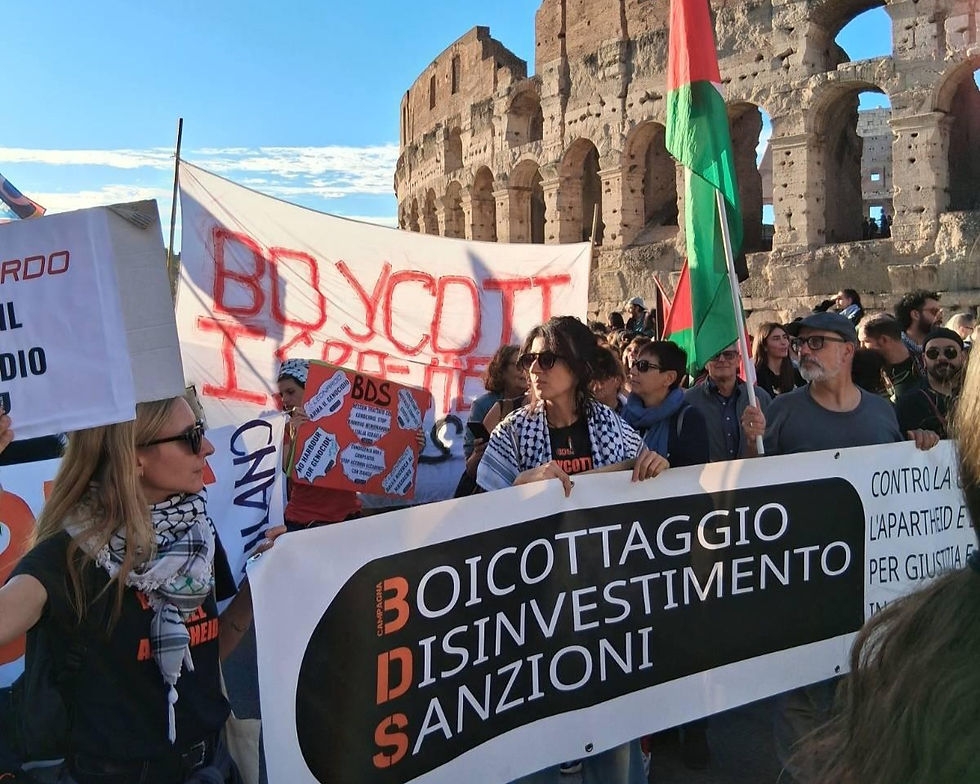Why a Social Enterprise?
- Matt Kletzing

- Apr 26, 2017
- 4 min read
Updated: Oct 26, 2021

For many years, we talked about setting up an organization that focusses on systemic change, alternative approaches to development and an unwavering ethical position. When United Edge finally began to take shape, we realized that we needed to make significant decisions about the legal structure -- were we setting up an NGO, a non-profit, a business, a social enterprise, a cooperative, or a collective?
From the outset, we knew that the structure of United Edge needed to be in line with our strategy and our values. We wanted to be an example of how things can be done differently. Having worked mostly with humanitarian and development organizations, we were most comfortable with the idea of setting up a charity. We know how to fund our work, are well connected with donors and other NGOs, and are excited about the level of accountability and transparency required in the sector. As a charity, we would be able to apply for many different funding opportunities and could even set up our own income-generating activities through an attached social enterprise. This felt like a comfortable option that also immediately reflects our vision of justice for the world.
However, years in the charity sector also brought many questions and uncertainties. We have seen the broken funding systems that come with massive compromises in ownership, independence and decision-making. Large donors often decide many key details of the programmes they hope to fund even before they identify the problems they intend to address or the best approaches for doing so. Donor timelines, targets and budget lines easily become more important than adaptable, participatory and strong programming. On top of that, there seems to be an innate lack of entrepreneurialism within the charity sector – a sector that is also under attack by tabloid press and populist movements.
At the other extreme, we realized that we could structure ourselves as a business with shareholders. This would allow us to raise funds and increase investment. We could access capital without being dependent on philanthropy, and we would retain the freedom to lead not only our strategic direction but also how the business would be run -- an important personal goal we had in setting up United Edge when thinking about remote working, work-life balance for staff, and creative sabbaticals. As good as that may sound, however, we were not comfortable diving head-first into the capitalist vision – a system based on debt that stratifies rich and poor. That certainly was not our vision for United Edge.
That’s when the idea of a social enterprise struck.
Social enterprises are not simple to define. Wikipedia says that “a social enterprise is an organization that applies commercial strategies to maximize improvements in human and environmental well-being”. But apart from if you live in Canada or a few other places, it is not usually possible to be legally registered as one (another stark reminder of the black-and-white world we live in – a company exists to increase the wealth of its shareholders while a charity exists to spread its cause or increase the quality of life of its beneficiaries -- why would you want to do both, right?).
The basic difference between corporations that engage in philanthropy and a social enterprise is the end game. A company’s primary goal will always be to increase profit for shareholders. Corporate social responsibility will always be geared towards the same goal through improving the image of a company, white-washing exploitative practices, or directly addressing special interests. For the social enterprise, the end game is not wealthier investors. Rather, it’s social capital for the purpose of lasting social change. Setting up an ethical business is a means to improving society in some specific, purposeful way.
Although charities and social enterprises share a social purpose, they also have one major difference. Charities require philanthropy to exist and are therefore subject to external influence and power. They are often prevented from selling products or services, so they rely on funds from a wealthier corner of society in order to provide services to the less privileged corner that they serve. There is an implicit reliance on a two-tiered society – those who have and those who need. A social enterprise, on the other hand, can fund itself. It can create income in all the ways that a business can and therefore doesn’t rely on donations, keeping them more independent and less influenced by those with money and power.
There are many alternative models out there, including many approaches to social enterprises. If we had been a small group of social entrepreneurs, we would have almost certainly chosen to become a cooperative or collective as these are extremely strong examples of more equitable systems of power. Other models look at fairer mechanisms of profit distribution or even ways of eliminating profit altogether. We quickly realized in our research that there are many, many diverse ways to be a social enterprise (see 4lenses’ typologies for more info) and that the term refers more to a way of thinking than to a specific business model.
United Edge is about entrepreneurial innovation, looking for new solutions, out with the old and in with the new. We certainly feel more start-up than charity. So why not become a business that provides cutting edge services to NGOs and other change makers but have entirely social goals? A business with a 100% social purpose.
So that’s what we have done.
Everything we do at United Edge is focussed on creating a more just world - from the projects we take on with social change partners and the trainings and pilot programmes we lead to the way that we are run, our approach to partnership, and the ethical values at our very core. This is what makes us a social enterprise. It’s an unwavering commitment to creating a better future above everything else we do. Over the coming few months we’ll be having discussions about more ways that we can reflect our commitment to justice in the way that we work and in our structure, especially as we expand our work and our team. For now though, we’re remaining flexible to learn, grow and develop our thinking as we set off on a journey to shift the way the way that social change is financed and the way that businesses affect social change. Farther up and farther in!




Comments